Saturday, 04/05/2024 | 02:08 GMT+7


Energy labeling for cars applied from 01 January 2015
Following the Decision 51/2011/QD-TTg, from 01 January 2015 the group of transportation vehicles including 7-seat cars or smaller ones are required to be energy labelled. To implement this, on 05 May 2014, Vietnam Registry Department organized a Workshop to introduce the 2nd Draft of Circular jointly issued by the Ministry of Industry and Trade and the Ministry of Transportation "Regulation on the inspection, certification and energy labeling for 7-seat cars and smaller ones".
Herewith, 7-seat cars and smaller ones (except for military vehicles, police vehicles, cars temporarily imported for re-exported, used cars, cars not using gasoline, diesel, LPG, CNG) have to apply for registration, inspection, certification of fuel consumption and energy labeling before being circulated on the market.

Cars of less than 7 seats must have energy labels from 01 January 2015
In the discussion with Mr. Nguyen Dong Phong, Deputy Director of Office of motor vehicle quality, Vietnam Registry Department, he said that the current preparatory works for the energy labeling for 7-seat cars and smaller ones are being positively deployed, to ensure the proper implementation of the roadmap of energy labeling.
He also added, Vietnam Registry Department has a modern quality control office that is established by the funding of millions of euros from the Austrian ODA. This office will ensure the best technology and human resources for the inspection and certification of fuel consumption, energy labeling for the category of 7-seat cars and smaller ones.
|
Consumers have more interest and confidence when shopping
To achieve the most objective assessments, www.vneec.gov.vn has
conducted surveys at a number of electronics supermarkets in Hanoi. To
observe a series of big electronics stores in Hanoi, we found a variety of
products with energy labels such as televisions, air conditioners, washing
machines, electric fans, rice cookers of many major brands as Sharp, Daikin,
Panasonic, Electrolux, LG, Sony ... At
Media Mart, according to the supermarket manager, although the mandatory
provisions of energy labeling came into force from 01 July 2013, many
products with energy labels had been sold long before that time. The
manager also shared that in the peak months of the last summer, a lot of
consumers to Media Mart asked for advice on energy saving products, mainly
including air conditioners, refrigerators and electric fans. As his
observations, the products with energy labels of 4 or 5 stars are the best-selling
products of all. "A
lot of customers asked us about energy labeling products. They asked us to
explain more about the information on the labels, how to compare among the
same products and what products they should buy. Consumers have more trust
and reliability to choose the equipment with energy labels" said
Topcare’s salesperson. According
to Mr. Nguyen Xuan Truong, customer service staff of Topcare supermarket
(Cau Giay District, Hanoi), consumers are now relatively keen on energy
labeling products. "Their first criterion is the compliance of the
products with their demand. The second is the information of energy
efficiency on the labels". "Conditioners,
refrigerators, televisions are among the most popular categories of energy
labeling. Most customers choose the products that are labeled with 4 or 5
stars, “added Mr. Truong. Ms. Le Thi Lan Phuong - the salesperson of a store on Xuan Thuy street (Cau Giay District, Hanoi) stated that: "In fact, not all consumers know about energy labels. However, when they are informed about the advantages of the labeled products in comparison with other products, most customers choose the devices with energy labels ". We had an interview with Mr. Trinh Hong Anh, a government official (Ba Dinh District, Hanoi), who was going shopping at the electronics supermarket. He said that he was very interested in the energy labeling products. "My habit when buying electronic equipment for families is considering its power consumption. Since the deployment of energy labeling, I find it easier to identify the energy-efficient products and to compare among the same categories of products. Generally, the energy labeling products have already been approved by the Ministry of Industry and Trade so we the consumers can fully trust. |


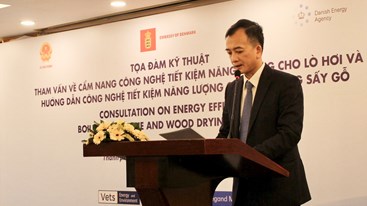
.png?w=367&h=206&mode=crop)
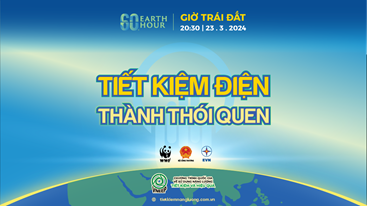
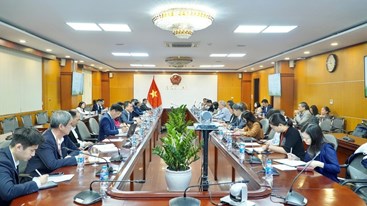
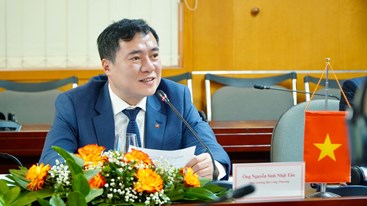

.jpg?w=367&h=206&mode=crop) Energy efficiency and conservation usage is an important aspect of the national energy development strategy
05/03/2024
Energy efficiency and conservation usage is an important aspect of the national energy development strategy
05/03/2024
 Challenges and Opportunities to promote energy efficiency market in Vietnam
Challenges and Opportunities to promote energy efficiency market in Vietnam
 The Ministry of Industry and Trade requests government agencies to coordinate in organizing Earth Hour 2024
The Ministry of Industry and Trade requests government agencies to coordinate in organizing Earth Hour 2024
 Consultation on Energy Efficiency Boiler Catalogue and Wood Drying Guideline
Consultation on Energy Efficiency Boiler Catalogue and Wood Drying Guideline
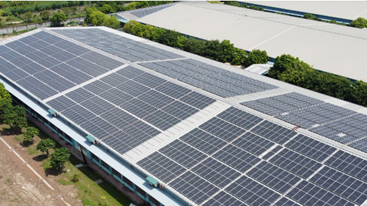 Son Ha Co., Ltd, applies energy efficiency and conservation measures
Son Ha Co., Ltd, applies energy efficiency and conservation measures
.png?w=367&h=206&mode=crop) Request for expression of interest - C2.1.13: Capacity Building on energy efficiency policies development
Request for expression of interest - C2.1.13: Capacity Building on energy efficiency policies development
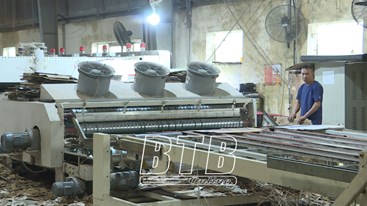 Phuc Kien Co., Ltd., is effectively implementing energy-saving measures
Phuc Kien Co., Ltd., is effectively implementing energy-saving measures
 Request for expression of interest - C2.1.12: Independent monitoring of safeguards implementation
Request for expression of interest - C2.1.12: Independent monitoring of safeguards implementation